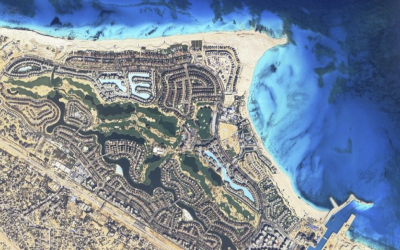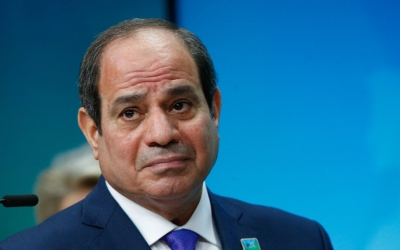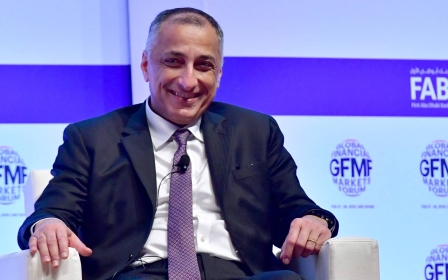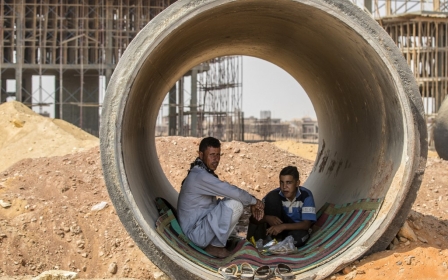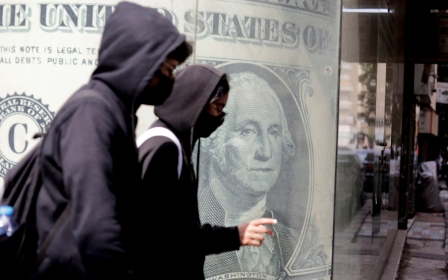Egypt: Sale of state assets to Saudi and UAE wealth funds divides opinion
The acquisition of Egyptian companies by foreign countries is creating rifts in Egypt, with some members of the public accusing the government of knowingly losing money-spinning businesses.
Arab companies and sovereign wealth funds, especially those of the United Arab Emirates (UAE) and Saudi Arabia, are acquiring stakes in Egyptian businesses and facilities, including fertiliser companies, hospitals and banks, and in so doing pumping billions of dollars into the national economy.
Saudi Arabia's Mouwasat Medical Services has recently acquired 100 percent of the shares in Al-Marasem international hospital, a major medical facility on the outskirts of Cairo.
Earlier this month, the Saudi Egyptian Investment Co, the investment arm of Saudi Arabia's state-owned Public Investment Fund in Egypt, acquired the Egyptian government's stake in the Misr Fertiliser Production Co (Mopco) in the port city of Damietta, more than 200km north of Cairo.
It also bought minority stakes in three other companies - Abu Qir Fertizilers and Chemical Industries, Alexandria Container and Cargo Handling, and payments firm E-Finance for Financial and Digital Investments.
The total cost of the four investments reached $1.3bn.
Saudi Arabia had previously pledged to invest $10bn in Egypt to help the populous Arab country as it struggles to contain the effects of the Russian war in Ukraine. The conflict has sent the nation's wheat and fuel bills soaring, put pressure on its currency and prompted it to seek International Monetary Fund assistance.
The Saudi acquisitions come on top of those made by the UAE, which have included stakes in a snacks producer, financial services companies, a bank, an electronic payment business and Mopco.
Investments of takeovers?
These transactions, among others, meant Egypt saw the second-largest number of acquisitions and mergers in the region during the first half of this year, with 65 deals worth $3.2bn.
However, the flurry of sell-offs has divided opinion in Egypt, with the government heralding them as positive for the country's economy while others warned of the dangers of selling state assets to overseas interests.
The government has said foreign investment will create jobs for citizens and expand the reach of Egyptian companies to the markets of the acquiring countries.
In June, cabinet spokesman Nader Saad said the government had the right to manage its own assets in a manner that brought it profit.
"We have diverse assets, and at this stage we find it appropriate to sell some of them and invest the returns in something else, including in the purchase of other assets," Saad told a local television channel.
Some economists agree, stating that acquisitions are a form of investment that brings in foreign currencies, which ends up benefiting the national economy.
"Egyptian companies are acquired because they are successful," Khaled al-Shafie, director of the Egyptian Centre for Economic Studies think tank, told Middle East Eye.
"The acquisitions energise the stock market and create jobs, especially if they cause an increase of the companies' overall capital."
Some members of the public strongly disagree.
Many speaking on social media said the acquisitions by Arab companies and sovereign wealth funds are normal business takeovers that have nothing to do with investment or job creation.
Others accused the government of selling what they describe as "strategic assets" to the Saudi Arabia and the UAE.
One user satirically said that, after acquiring all of Egypt's companies, the two Gulf countries will take the golden eagle from the nation's flag, too.
Mitigate losses
Despite the criticism by some, the acquisitions appear to be inevitable. The war in Ukraine has dealt a serious blow to the Egyptian economy in many aspects, from rising food and oil prices to a sizeable slash in tourism revenues.
"Wars always have devastating effects, and the Russian-Ukrainian war is doing just that," al-Shafie said. "Covid-19 also slowed growth, not only here but everywhere else."
To mitigate the losses, the government is now pushing for the privatisation of some sectors of the economy, including through foreign investors, among other measures.
In a policy blueprint titled State Ownership Policy, the government laid out a plan to either partially or totally end state control over sectors such as port construction, fertilizer production and water desalination over the next three years.
Egypt hopes to attract $40bn in investments by offering these assets to private investors.
Cairo is also trying to capitalise on the surge in global energy prices by increasing its gas exports. One of the measures it will take to ensure that there is more gas to trade is to dim some of its lights.
Egypt produces more electricity than its population needs, but its power plants consume almost 60 percent of its total natural gas production, according to Prime Minister Mostafa Madbouly.
Promoting the government's new plan, Madbouly said Cairo can sell gas abroad at 10 times the cost it is bought internally by electricity plants, which can turn to fuel oil instead of gas.
Egypt is also launching major tourism promotion campaigns and targeting new markets, including in the Arab region, Asia and Latin America, to compensate losses to the local tourism sector from the war in Ukraine.
"These measures were also accompanied by a series of social welfare initiatives to reduce pressures on ordinary people," Mohamed Abdel Hamid, a member of the parliament's committee on economic affairs, told MEE.
"Nevertheless, we are badly in need of increasing our agricultural output because this will help us save a huge amount of money that goes into the import of food."
Undeclared motives
Privatisation and the sale of state assets have a historically negative reputation in Egypt, with the process associated with the corruption that tainted a national privatisation programme in the 1990s.
A huge number of state-owned companies and factories were sold under late president Hosni Mubarak for prices far less than their market value, which caused public anger at the time.
There are fears that Arab states may now be using Egypt's deteriorating economic conditions to get public assets for less than their actual market worth and that the return from the sales will be used to repay the country's accumulating debts.
'Sorry to say, our country experiences exceptionally hard conditions and it does not have the freedom to select the type of investments it can take or leave'
- Mamdouh al-Wali, Economist
Some of the Arab states buying local assets have already deposited billions of dollars into the Central Bank of Egypt to prop up foreign currency reserves and help keep the national currency afloat against foreign currencies.
This has led to the concern that Egypt will trade these deposits for local assets or use the returns to repay its debts.
Additionally, Arab states are acquiring companies that are successful and already making a lot of profit, independent economist Mamdouh al-Wali said.
"These acquisitions are not leading to the expansion of the companies acquired," Wali told MEE. "Sorry to say, our country is experiencing exceptionally hard conditions, and it does not have the freedom to select the type of investments it can take or leave."
Middle East Eye delivers independent and unrivalled coverage and analysis of the Middle East, North Africa and beyond. To learn more about republishing this content and the associated fees, please fill out this form. More about MEE can be found here.


